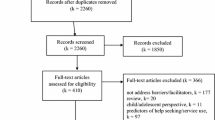Abstract
This paper presents definitions of child care quality from focus groups conducted to develop a research design to assess the quality of Minnesota's regulated child care system. Eleven individual interviews and 38 focus groups involving 333 people were held in communities throughout Minnesota between 1-11-00 and 6-14-00. The focus groups represented the various stake holders interested in child care quality including parents, legislators, child care staff and administrators, licensed and unlicensed family child care providers, family and center based child care licensors, child care resource and referral staff, and teacher educators. Beginning first with the traditional definition of child care quality (what is good for the child) and related quality indicators, the author presents Katz's (Multiple perspectives on the quality of early childhood programs) four dimensional definition of child care quality and the associated research investigating these dimensions. The similarities and differences in various stake holder groups' definitions of child care quality are then presented and compared with Love, Schocket, & Meckstroth's review of child care research. The paper ends with a discussion how stake holders' definitions of child care quality may inform researchers and policymakers about child care quality.
Similar content being viewed by others
REFERENCES
Anderson,C., Nagle,R., Roberts,W., & Smith,J.(1981). Attachment to substitute 'caregivers as a function of center quality and caregiver involvement.Child Development,52 (1), 53-61.
Bredekamp,S.(1984).Accreditation criteria and procedures for high quality early childhood programs.Washington,DC: NAEYC.
Bredekamp,S., & Copple,C.(Eds.).(1997).Developmentally appropriate practices in early childhood programs,revised edi-tion.Washington,DC: National Association for the Education of Young Children.
Brick,D., Brick,P., Kenney,G., McCullough-Harlin,R., Rajan, S., Scheuren,F., Wang,K., Brink,M., & Cunningham,P. (1999).NSAF survey methods and reliability in National survey of America 's families:Methodology report No.1.Washington, DC: The Urban Institute.
Burchinal, M.R., Roberts, J.E., Nabors, L.A., & Bryant, D. M.(1996).Quality of center child care and infant cognitive and language development.Child Development,67 (2), 606-615.
Capizzano,J., & Adams,G.(2000).The number of child care arrangements used by children under ve:Variations across states.Washington,DC: Urban Institute.
Cohen, A.J.(1996).A brief history of federal nancing for child care in the United States.The Future of Children,6 (2), 26-40.
Cornelius,S., & Denney,N.(1975).Dependency in daycare and home care children.Developmental Psychology,11 (5), 575-582.
Emlen,A.(1999).From a parent 's point of view:Measuring the quality of child care.Portland,OR: Portland State Univer-sity.
Galinsky,E., Howes,C., Kontos,S., & Shinn,M.(1994).The study of children in family child care and relative care:Highlights of findings.New York: Families and Work Institute.
Graue, M.E., & Walsh, D.J.(1999).Studying children in context: Theories,methods,and ethics.Thousand Oaks,CA: Sage.
Hofferth,S., Brayfield,A., Deich,S., & Holcomb,P.(1991). National child care survey,1990.Washington,DC: The Urban Institute Press.
Katz,L.(1993).Multiple perspectives on the quality of early child-hood programs.ERIC Document Reproduction Service No: ED355 041.
Langsted,O.(1994).Looking at quality from the child 's perspec-tive.In P.Moss & A.Pence (Eds.),Valuing quality in early childhood services:New approaches to de ning quality (pp.28-42).New York: Teachers College Press.
Love, J.M., Schochet, P.Z., & Meckstroth, A.L.(1996 ).Are they in any real danger?What research does-and doesn 't-tell us about child care quality and children 's well-being.Princeton, NJ: Mathematica Policy Research Inc.
McCartney,K., Scarr,S., Phillips,D., Grajek,D., & Schwarz,C. (1982).Environmental di.erences among day care centers and their e.ects on children 's level of intellectual,language,and social development.In E.Zigler & E.Gordon (Eds.),Daycare: Scientific and social policy issues (pp.126-151).Boston: Auburn House.
Peisner-Feinberg,E., Clifford,R., Yazejian,N., Culkin,M., Howes,C., & Kagan,S.(1998,April).The longitudinal e.ects of child care quality:Implications for kindergarten success.Paper presented at the meeting of the American Educational Research Association Annual Meeting,San Diego,CA.
Pence,A., & Moss,P.(1994).Towards an inclusionary approach in de ning quality.In P.Moss & A.Pence (Eds.),Valuing quality in early childhood services:New approaches to defining quality (pp.172-179).New York,NY: Teachers College Press.
Phillips, D.A.(Ed.).(1995).Child care for low-income families. Washington,DC: National Academy Press.
Phillips,D., McCartney,K., & Scarr,S.(1987).Child-care quality and children 's social development.Developmental Psychology, 23 (4),537-543.
Whitebook,M., Howes,C., & Phillips,D.(1990).Who cares:Child care teachers and the quality of care in America:Final report of the National Child Care Staffing Study.Oakland,CA: Child Care Employee Project.
Author information
Authors and Affiliations
Rights and permissions
About this article
Cite this article
Ceglowski, D. How Stake Holder Groups Define Quality in Child Care. Early Childhood Education Journal 32, 101–111 (2004). https://doi.org/10.1007/s10643-004-1076-6
Issue Date:
DOI: https://doi.org/10.1007/s10643-004-1076-6




